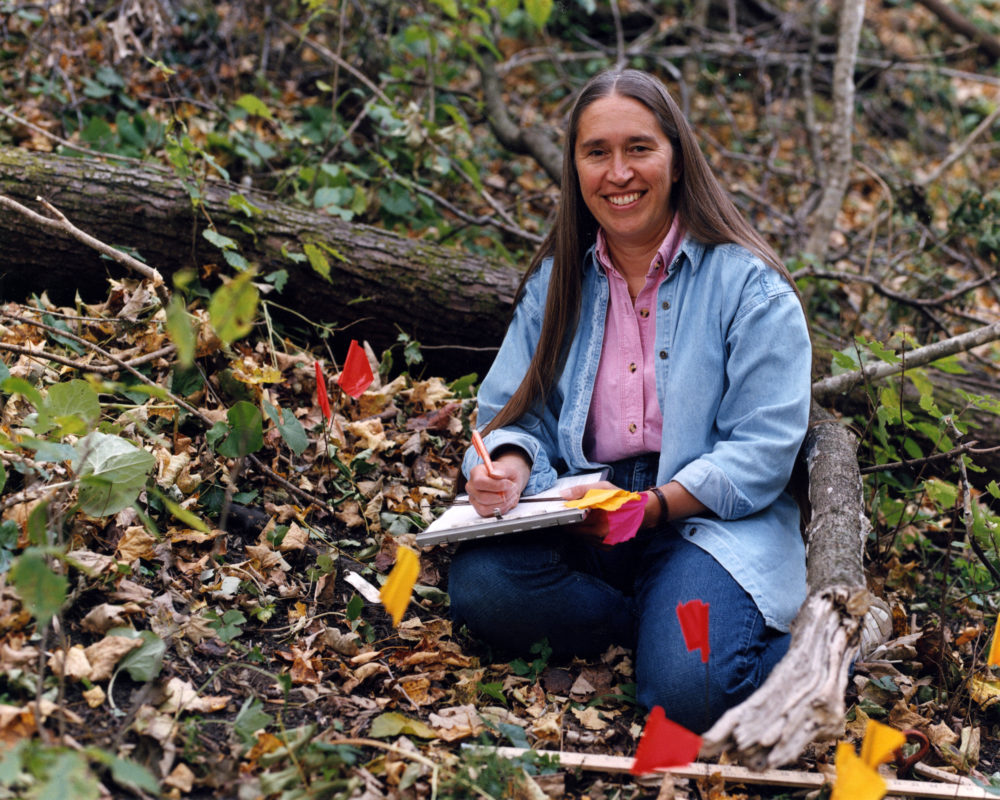
Cindy Johnson
Every year at commencement, I am excited to hear the announcement of the Edgar M. Carlson Award for Distinguished Teaching. The reason I find it so exciting is because I hear the voices of our students, quoted from their letters of nomination, expressing what it is they value in an outstanding teacher. This year will be no exception; our winner is an exemplar of several qualities we hold in high esteem. In particular, reading through the nominations, two words came foremost lo my mind: passion and compassion.
With regard to passion, one student writes that this year’s award winner’s “enthusiasm in the field is unmatched by any other professor I have had.” Another adds that this professor is very excited about the work she does at Gustavus: “She clearly loves [her field] and spreads that love. around. She propelled my academic shift from medicine to her field.”
This last comment, about infectious passion causing a shift in academic direction, is not an isolated example; other students have had the same experience. One writes, “She loves what she does and has encouraged me to be open to new areas and has helped me to change my mind on what area… I like the most.” Our award winner has even been said to suffer from “madness of a contagious variety”!
Before giving you the evidence regarding compassion, I need to clarify my use of the term. I am not speaking here of feeling sorry for those in trouble. I am speaking of feeling a togetherness with others, in all their seasons-joy as well as sorrow. More too than just feeling: acting in concert with others as well. This sort of solidarity needs to be founded on understanding and appreciation of the others in their totality. Sure enough, a student writes that our award winner “understands college kids, college life, and the fact that everything doesn’t revolve around her field.” Another writes, “[She] has earned my respect because she treats me as an individual, not just a number. She cares about me and all her students in a special, individual way.” Many students describe her as a mentor of the highest order; one writes. “Truly this is not the kind of relationship I expected lo have with a professor when I came to college.”
These attitudes of passion and compassion play out within a context of skilled practice of the craft of teaching. Students appreciate what this professor brings out of them. They do not come to her classes for an easy ride, but rather for a rewarding endeavor. As one writes, “Although many say that [she] is a tough grader, one walks away from the class with a sense of confidence due to the amount of material learned.”
Why do students learn so much? We have some clues from the nominations: “She instills a desire to learn by constantly reminding us of the applications of the material we’re studying… [She] is knowledgeable in many other areas…so can make useful connections for the class between disciplines… She is very focused on [her] research, but that does not take away from her time or ability to teach or work with students. In fact, it just gives her other ways to work with students and other methods of teaching.” From another: “She encourages students to work together and teach each other. It is because of her encouragement and unique class set-up that [her] classes bond together and develop great working relationships.”
In light of these accomplishments, I am greatly honored to invite to join me at the podium that master of relationships, that contagious carrier of the passion known as “moonwort madness,” Professor Cindy Johnson-Groh.
Doctor Johnson-Groh received her Ph.D. in botany with honors from Iowa State University in 1987. Since joining the Department of Biology at Gustavus in 1995, she has been teaching a range of courses concerning plants and conservation biology. She is nationally known for her work on moonworts, a rare genus of fern that she has studied from Minnesota to Alaska, as well as in her laboratory. She has engaged her students in this work, producing papers such as “Below-Ground Distribution and Abundance of Botrychium Gametophytes and Juvenile Sporophytes.” She has engaged her students not only in research, but also in service, having them join her in prairie restoration on the Ottawa Bluffs. She has also taken her students to study in the field, in settings ranging from Tanzania to the Ozarks. She has served as a consultant to the National Forest Service, the Minnesota Department of Natural Resources, and other agencies. She serves on the council of the American Fem Society and edits its newsletter, The Fiddlehead Forum. I am delighted that today she adds the Edgar M. Carlson Award for Distinguished Teaching to her list of achievements.
Presented by Max Hailperin
Associate Professor of Mathematics and Computer Science
2002 Recipient of the Edgar M. Carlson Award